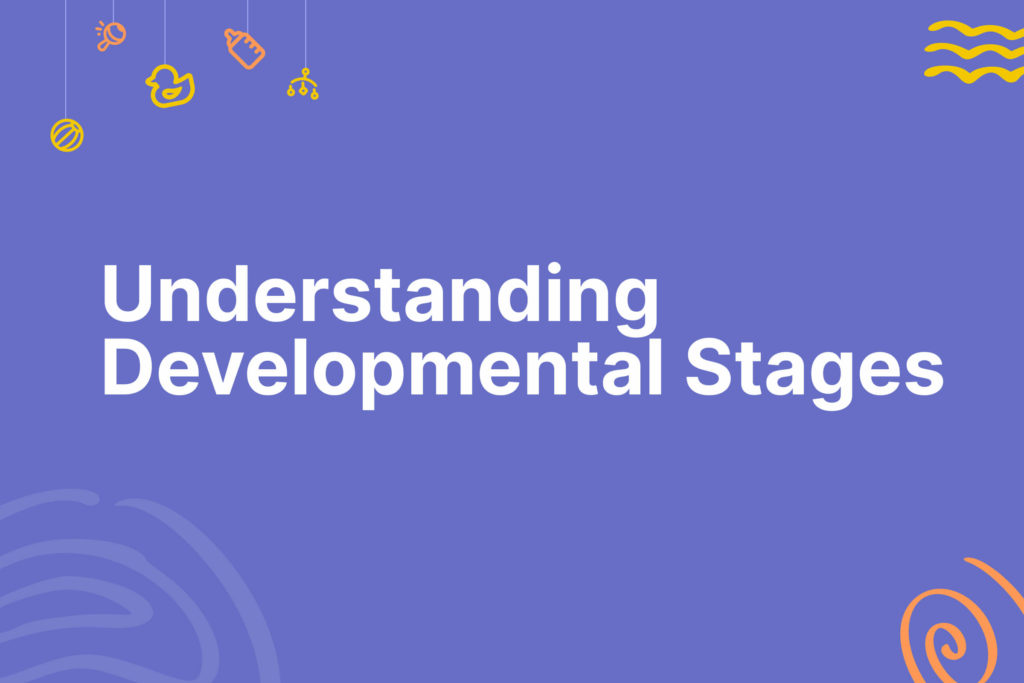Developmental stages refer to the different phases of growth and development that individuals go through from birth until adulthood.
These stages are characterized by changes in physical, cognitive, emotional, and social abilities, and they are influenced by both nature (genetics) and nurture (environmental factors).

Importance of understanding Developmental Stages
Understanding developmental stages are crucial for parents, educators, and healthcare professionals, as it allows them to identify whether a child is developing normally or experiencing delays or disorders. It also helps them provide appropriate support and guidance to children at each stage of development.
Purpose of the Article
This article aims to provide a comprehensive overview of the developmental stages of babies, newborns, infants, and toddlers, including their physical, cognitive, emotional, and social development.
Baby Stage
The baby stage, also known as the neonatal stage, refers to the first month of life after birth. During this stage, babies are entirely dependent on their caregivers for their survival and well-being.
| Stages | Definition |
|---|---|
| Physical Development during Baby Stage | This stage includes rapid growth in height and weight, as well as the development of motor skills, such as grasping, sucking, and rooting reflexes. |
| Cognitive Development during Baby Stage | Cognitive development during the baby stage is limited, as babies’ brains are still developing. However, they can distinguish between familiar and unfamiliar faces and respond to sounds and voices. |
| Emotional Development during Baby Stage | Primarily characterized by the formation of attachment bonds with caregivers, babies learn to recognize their primary caregivers’ faces and voices. |
| Social Development during Baby Stage | Social development during the baby stage is limited, as babies are unable to communicate or interact intentionally with others. |
Newborn Stage
The newborn stage refers to the first two weeks of life after birth. During this stage, babies are adjusting to their new environment outside of the womb.
| Stages | Definition |
|---|---|
| Physical Development during Newborn Stage | This stage includes the continuation of rapid growth in height and weight, as well as the development of basic motor skills, such as turning their head or moving their arms and legs. |
| Cognitive Development during Newborn Stage | During the newborn stage is still limited, but babies may begin to recognize familiar voices and sounds and show a preference for certain sensory stimuli. |
| Emotional Development during Newborn Stage | The newborn stage is focused on attachment, as babies form strong bonds with their primary caregivers through physical contact, such as cuddling and feeding. |
| Social Development during Newborn Stage | This stage is limited, but babies may show an interest in social stimuli, such as faces, and prefer human faces over other types of stimuli. |
Infant Stage
The infant stage refers to the period from 2 weeks to 1 year of age. During this stage, babies continue to grow and develop rapidly, becoming more mobile and independent.
| Stages | Definition |
|---|---|
| Physical Development during Infant Stage | The infant stage includes the growth and development of motor skills, such as crawling, standing, and walking, as well as the development of fine motor skills, such as grasping and manipulating objects. |
| Cognitive Development during Infant Stage | This stage includes the development of memory, attention, and perception, as well as the ability to understand cause-and-effect relationships and solve simple problems. |
| Emotional Development during Infant Stage | The infant stage involves the development of self-awareness, emotional regulation, and the ability to form close relationships with others beyond the primary caregiver. |
| Social Development during Infant Stage | The infant stage involves the development of social skills and the ability to communicate intentionally with others, such as through facial expressions and gestures. |
Toddler Stage
The toddler stage refers to the period from 1 to 3 years of age. During this stage, children become more independent and begin to assert their autonomy.
| Stages | Definition |
|---|---|
| Physical Development during Toddler Stage | The toddler stage includes the development of gross and fine motor skills, as well as the refinement of skills learned during the infant stage, such as running, jumping, and climbing. |
| Cognitive Development during Toddler Stage | Cognitive development during the toddler stage includes the development of language, memory, and problem-solving skills, as well as the ability to engage in symbolic play. |
| Emotional Development during Toddler Stage | Emotional development during the toddler stage involves the development of empathy, self-esteem, and the ability to regulate emotions and behavior. |
| Social Development during Toddler Stage | Social development during the toddler stage involves the development of social skills, such as taking turns, sharing, and playing with others, as well as the formation of close friendships with peers. |
Comparison of Baby, Newborn, Infant, and Toddler Stage
This table compares the key features and developmental milestones of the four stages of early childhood development: Baby, Newborn, Infant, and Toddler.
| Stage | Description |
|---|---|
| Baby stage | Typically refers to the first year of life, during which the baby develops rapidly and learns basic skills like rolling, crawling, and sitting up. |
| Newborn stage | Refers specifically to the first few weeks of life, during which the baby is adjusting to being outside the womb and bonding with their caregivers. |
| Infant stage | Refers to the period between the end of the baby stage and the toddler stage, during which the baby continues to develop language, motor, and social skills. |
| Toddler stage | Typically refers to the period between the ages of one and three years old, during which the child becomes increasingly independent, learns to walk and run, and develops more advanced language skills. |
The table compares and contrasts the four different developmental stages in a child’s life: Baby stage, Newborn stage, Infant stage, and Toddler stage. Each stage has a unique set of characteristics and developmental milestones that are important to understand for parents and caregivers.

Comparison of Developmental Stages
Physical Development
Physical development is rapid during the baby and newborn stages, slowing down during the infant and toddler stages. Motor skills become more refined and complex with each stage.
Cognitive Development
Cognitive development becomes more complex and sophisticated with each stage, with infants and toddlers developing the ability to understand cause-and-effect relationships, solve problems, and engage in symbolic play.
Emotional Development
Emotional development becomes more nuanced and sophisticated with each stage, with infants and toddlers developing the ability to regulate their emotions, form close relationships with others, and empathize with others.
Social Development
Social development becomes more complex and sophisticated with each stage, with infants and toddlers developing the ability to communicate intentionally with others, engage in social play, and form close friendships with peers.
Summary of Developmental Stage
Understanding the developmental stages of babies, newborns, infants, and toddlers is essential for identifying potential developmental delays or disorders and providing appropriate support and guidance to children at each stage of development.
Implications of understanding Developmental Stages
Parents, educators, and healthcare professionals can use knowledge of developmental stages to tailor their interactions and interventions to meet the specific needs of children at different stages of development. This can promote healthy growth and development, prevent developmental delays, and improve outcomes for children in the long term.
Final Thoughts
Early identification of potential developmental delays or disorders can lead to more effective interventions and better long-term outcomes.
While every child develops at their own pace, knowledge of developmental stages can help identify concerns and ensure that children receive the support and resources they need to thrive.
In summary, this article provides a comprehensive overview of the developmental stages of babies, newborns, infants, and toddlers.
By understanding the unique features of each stage, parents, educators, and healthcare professionals can better support and promote healthy growth and development in children, ultimately ensuring that they reach their full potential and lead fulfilling lives.
Popular Gift Ideas For Newborns
Blissbies’ collection of newborn baby gift sets and hampers is designed to provide positive learning experiences for babies and support new parents on their journey. Our wide selection of options includes gifts for baby girls, boys, and new parents alike.
Visit our website today to explore our collection and find the perfect present for your loved one. With fast and reliable shipping, your gift will be delivered directly to your doorstep. Give the gift of joy with Blissbies and make your little one’s day!







